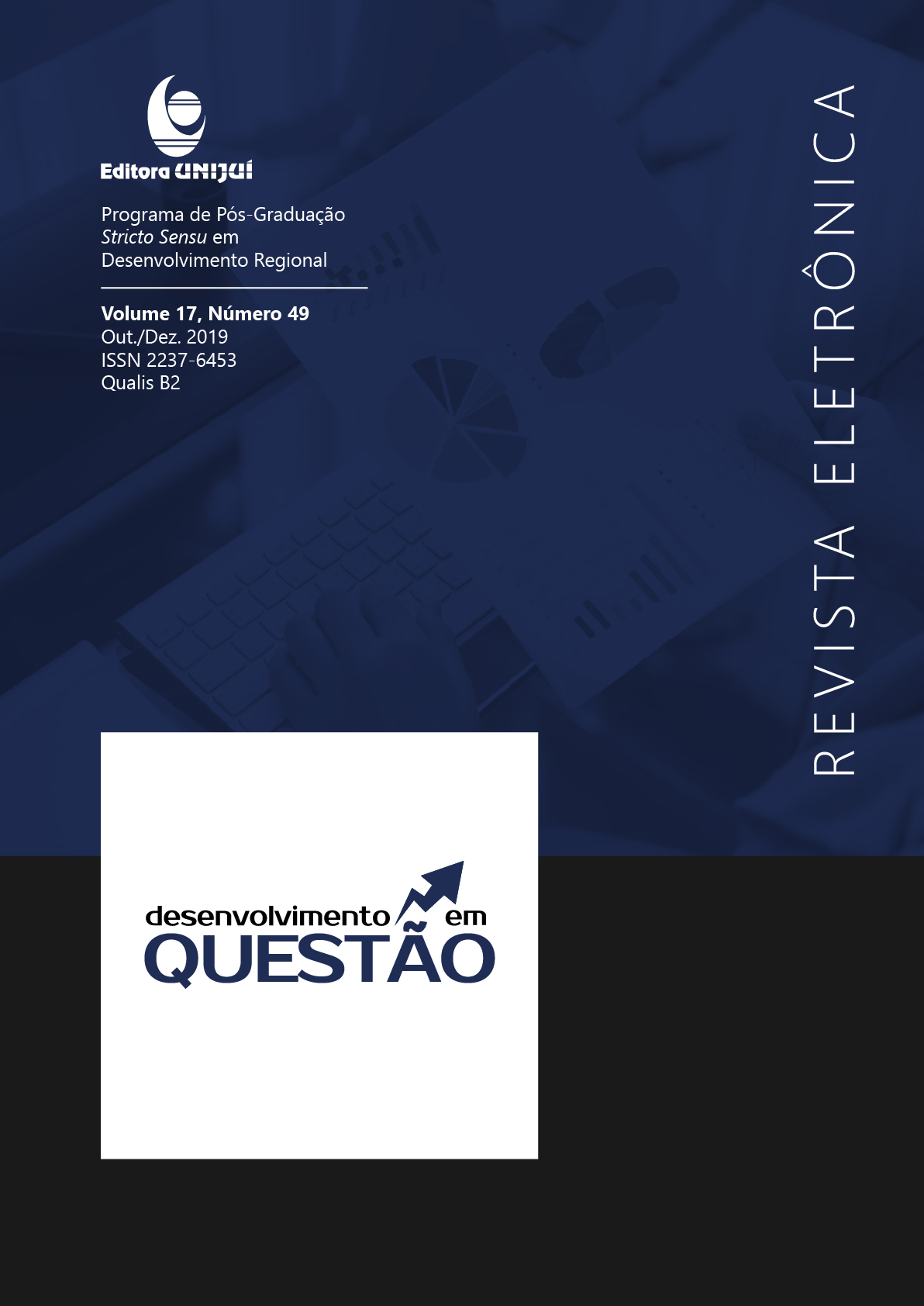Gestão de Resíduos Sólidos Integrada às Responsabilidades das Micro e Pequenas Empresas e do Poder Público Municipal
DOI:
https://doi.org/10.21527/2237-6453.2019.49.112-135Palavras-chave:
Resíduos Sólidos. Política Nacional de Resíduos Sólidos. Micro e Pequenas Empresas. Logística Reversa. Planos de Gestão Integrada.Resumo
O objetivo deste trabalho foi evidenciar o conhecimento e a percepção dos administradores de micro e pequenas empresas (MPE) quanto à gestão dos resíduos sólidos na Região do ABC Paulista. A análise considera a aplicabilidade local da Lei nº 12.305/2010 (Política Nacional de Resíduos Sólidos), especificamente dos Planos Municipais de Resíduos Sólidos. Trata-se de um estudo exploratório e qualitativo. Utilizou-se uma amostra de 29 (vinte e nove) MPE distribuídas nos setores de comércio, indústria e serviços. O estudo relata as experiências e práticas desses administradores, compostos em sua maioria por proprietários, mas também com participação de gestores não proprietários. Utilizou-se de coleta documental, a fim de explorar o modelo consorciado da região e o teor dos Planos Municipais, além da técnica da observação direta extensiva, por meio de questionário auto aplicado. Ademais, foram realizadas entrevistas in loco para as categorias de MPE que se apresentaram, para cada setor, em maior quantidade nas sete cidades da região. O questionário foi composto em três partes: (A) por questões fechadas de múltipla escolha; (B) por escala do tipo Likert; (C) por questões abertas. Verificou-se que mais de 60% dos administradores de MPE não possuem conhecimentos básicos sobre as leis e normas que regem a gestão dos resíduos sólidos e demais compromissos ambientais, por exemplo, a necessidade de possuir licenciamento ambiental quanto ao impacto local ou eventual obrigatoriedade de executar um Plano de Gerenciamento de Resíduos Sólidos (Logística Reversa). Por outro lado, uma parcela significativa de entrevistados mostrou-se disposto quanto às práticas sustentáveis, preocupando-se em utilizar insumos menos agressivos ao meio ambiente em seus processos produtivos e em separar seus resíduos corretamente. Conclui-se que, exceto quanto aos resíduos industriais e de saúde, a interação das MPE com o Poder Público local não registrou coesão, destacando-se o distanciamento entre as propostas apresentas pelas prefeituras do ABC nos Planos Municipais e as práticas relatadas pelos administradores junto aquele ator.
Downloads
Publicado
Como Citar
Edição
Seção
Licença
Ao publicar na Revista Desenvolvimento em Questão, os autores concordam com os seguintes termos:
Os trabalhos seguem a licença Creative Commons Atribuição 4.0 Internacional (CC BY 4.0), que permite:
Compartilhar — copiar e redistribuir o material em qualquer meio ou formato;
Adaptar — remixar, transformar e criar a partir do material para qualquer fim, inclusive comercial.
Essas permissões são irrevogáveis, desde que respeitados os seguintes termos:
Atribuição — Atribuição — os autores devem ser devidamente creditados, com link para a licença e indicação de eventuais alterações realizadas.
Sem restrições adicionais — não podem ser aplicadas condições legais ou tecnológicas que restrinjam o uso permitido pela licença.
Avisos:
A licença não se aplica a elementos em domínio público ou cobertos por exceções legais.
A licença não garante todos os direitos necessários para usos específicos (ex.: direitos de imagem, privacidade ou morais).
A revista não se responsabiliza pelas opiniões expressas nos artigos, que são de exclusiva responsabilidade dos autores. O Editor, com o apoio do Comitê Editorial, reserva-se o direito de sugerir ou solicitar modificações quando necessário.
Somente serão aceitos artigos científicos originais, com resultados de pesquisas de interesse que não tenham sido publicados nem submetidos simultaneamente a outro periódico com o mesmo objetivo.
A menção a marcas comerciais ou produtos específicos destina-se apenas à identificação, sem qualquer vínculo promocional por parte dos autores ou da revista.
Contrato de Licença (para artigos publicados a partir de 2025): Os autores mantêm os direitos autorais sobre seu artigo, e concedem a Revista Desenvolvimento em Questão o direito de primeira publicação.











